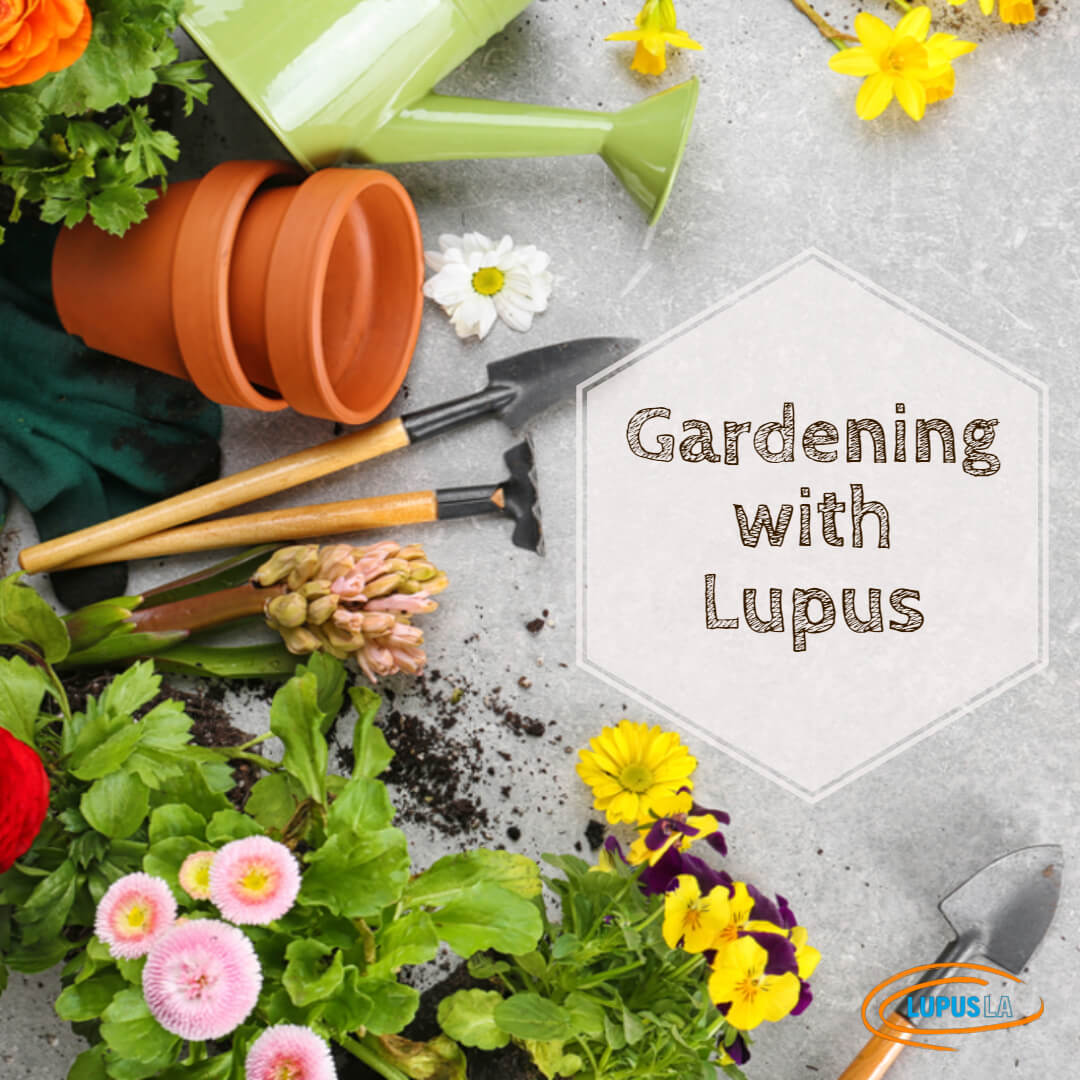

May 25, 2018

For those with Lupus, the idea of exercise in any form can be daunting, and depending upon the type of Lupus, there can be a wide range of things that need to be avoided. Recent research has shown that Lupus symptoms can be alleviated by exercise but that this is not without cost. In some cases those costs are far outweighed by the benefits, but it is best that those with the condition ask their doctor about this before starting to exercise. Gardening represents a gentle form of exercise that can be used to help those with Lupus, while producing some secondary benefits that will also help with the condition.
Why Gardening?
There are many suggested ways to help with Lupus beyond medication. It is known that gentle exercise, and anything that has a positive impact on the mental health of the person with Lupus, will help to relieve symptoms. Exercise releases endorphins, chemicals that allow the body to experience happiness, and that help relieve pain. Endorphins are also released by a sense of accomplishment and whenever experiencing anything pleasurable; such as the beauty of a well kept garden. Gardening is an active pursuit that produces beautiful results. Whilst pesticides are linked as a potential cause of Lupus, organic vegetables are known to help relieve the symptoms – so it makes sense to get exercise whilst gardening to produce your own organic produce.
The Problems With Gardening
Gardening can be fantastic for Lupus but there are many aspects of the condition to be taken into account. With severe joint pain, it is important to limit how much exercise is taken and to work in short bursts. With the potential for flare ups from mold or chemicals, it is vital to wear gloves, and on occasion, a dust mask. Perhaps most importantly if you are going to garden with Lupus, you’ll need to invest in a good, wide-brimmed hat. Direct exposure to sunlight can be very harmful for many people with Lupus so it is a good idea to wear longer trousers (or skirt) and a long-sleeved top. Like all exercise, it is a good idea to start with something small, a basic gardening technique. Early in the season, those with Lupus can gauge their reactions to gardening by preparing planters. An outdoor table can be utilized along with toilet paper rolls and a mixture of compost, soil and used coffee grounds. Simply get a tray, stand the empty toilet roll up on it, fill to ¾ with your mixture, plant a seed, top up and then water. This simple first step will help you discover if you need to wear a mask or not, if your protection from the sun is sufficient, or if there are any other issues to be aware of.
Further Tips For Gardening With Lupus
The key to successful gardening with Lupus is to avoid overdoing it and to not get exposed to anything that will exacerbate your symptoms. Take advantage of any opportunity to stay in the shade or remain seated. Raised gardens help to avoid bending or squatting and garden parasols can be repurposed to help provide cover.
With flowers, it is a good idea to plant as densely as possible. A thick cover of planting is a great way to inhibit weed growth and cut down on the amount of work needing doing. Pots and containers may seem like a great way to cut down on your work, but they require constant watering. Invest in a thick sponge knee pad to avoid aches and pains when working. Mulch and weed-suppressing membranes can cut down your work in the long run but are hard work to start with. Cut down on your need to rake by not using a grass box on your mower. If you cut frequently you won’t have masses of grass blocking the sunlight and you’ll be returning nutrients to the soil (avoiding the need to use any chemicals).
Gardening can be hard work and is not without its risks for those with Lupus. Yet the rewards of organic food and wonderful surroundings make it worthwhile, provided you take these sensible precautions.
Written by, Jess Walter, Freelance Writer